|
As one of the few nonprofit regional conservation centers in the United States, and the only such center in the western region, the Balboa Art Conservation Center is undergoing transformational change as it shifts into a radically inclusive and accessible art conservation organization. The BACC Board helps nourish this shift while ensuring the organization's vision for inclusion has long-term systemic impact. The BACC Board of Trustees is led by Board President Dana Springs and boasts a board membership that is 50% BIPOC (Black, Indigenous, and People of Color). In addition to its racial diversity, BACC board members are located throughout BACC’s service area, including Seattle, the Bay Area, Los Angeles, and San Diego. They bring a range and depth of expertise in community organizing, arts management and advocacy, fundraising, conservation, education, and financial management. Their diverse perspectives and skills are essential as BACC seeks to fulfill its vision for equity and healing within our own structure and workplace, as well as the communities we serve. Throughout 2023, we are highlighting each of our Board Members to better understand what excites them about being a part of the BACC Team at this transformative time. 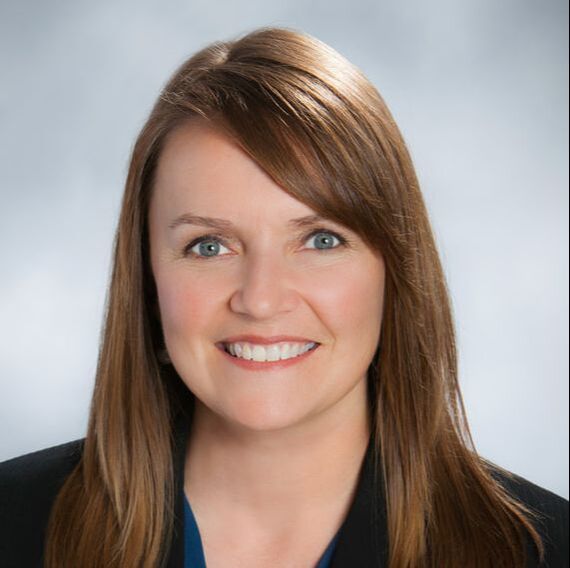 Kristin Beattie works for the University of California Irvine, where she supports management in successfully navigating labor and employment issues. Previously, Beattie served as an employment/labor advisory attorney at the San Diego County Sheriff’s Department, and before that, as a Senior Deputy City Attorney for the City of San Diego for over a decade. Across all endeavors, Beattie focuses on stakeholder partnerships, innovative and strategic problem solving, justice, equity, and ethics. She works creatively and collaboratively with management to achieve their priorities and recommends strategies for minimizing risk. In addition to her involvement with BACC, she volunteers her time to support Lawyers Club of San Diego and Riverview International Academy – and during the summer, enjoys visiting the Laguna Beach Festival of Arts where her aunt is a long-time juried exhibitor. She earned her Juris Doctor from Loyola Law School and a Bachelor of Arts in American Studies from Stanford University, with a minor in Race and Ethnicity. BACC: How does your professional, community, and/or cultural work inform your role as a BACC Board Member? Kristin: Long before I began serving the public at the city, county, and state levels, I started work at my family’s small business. There, business development through community engagement, compliance, creative problem solving, and thoughtful growth were markers of success. The lessons of those formative years in business inform my approach to supporting and advising BACC leadership as the organization moves into a new era, burgeoning with opportunity and potential. B: What excites you most about being on the BACC Board? K: For me, the most exciting part of being a BACC Board member is to be part of a team supporting the organization as it builds a sustainable approach to organizational management, develops a more diverse pipeline to conservation as a profession, and stretches to become an integral resource to an ever-broadening community across our region. B: If you could have one artwork or artifact (personal or otherwise) conserved by the BACC team, what would it be and why? K: This is a wonderful and difficult question because my family is full of artists and I would hope to have their works last for many generations to come. My mother’s ceramics? My aunt’s watercolor quilts? My uncle’s color pencil and crayon drawings? My late grandmother’s crayon drawing on a paper napkin ring from one of our many Sunday lunches? The next generation’s art? Perhaps the answer is that I would like us all to know more about conserving art and artifacts – everything has a story to tell, and I’m honored to be a part of BACC’s role in keeping those stories alive. SAN DIEGO, Calif. —December 5, 2023--Balboa Art Conservation Center (BACC), the only nonprofit regional conservation center in the western region, has been selected as a grant recipient by Prebys Foundation, San Diego County’s largest independent private foundation.
The $225,000 in grant funding will support BACC’s efforts to develop partnerships with under-resourced collecting entities and artists, ensuring that relevant and inclusive preservation services are accessible to a wider, diverse audience. In an ongoing effort to break existing barriers of access to conservation services, BACC conservators will collaborate with collections caretakers in San Diego and assist them in assessing and understanding their collections’ preservation needs. BACC conservators will provide resources and training on emergency preparedness and response, integrated pest management, best storage and handling practices, and conservation prioritization. “Our communities are better thanks to the work of Balboa Art Conservation Center,” said Grant Oliphant, CEO of Prebys Foundation. “This is why we are proud to invest $225,000 to their work advancing our shared vision for a vibrant and thriving region. We encourage others to support, learn more, and celebrate their work.” This work is crucial as BACC seeks to be a model for inclusive conservation practice and a champion for increased accessibility and equity within the field of art conservation. All of BACC’s conservators are exceptionally trained in their areas of specialty, providing expertise that is unparalleled within the San Diego region and services that are unavailable throughout the majority of the American west. BACC is also the only publicly accessible conservation facility in the American west as well as the only resource for advanced examination and analytical techniques essential to understanding an object’s structure, material, and history, such as X-radiography, infrared reflectography, and X-ray fluorescence spectroscopy. BACC Executive Director Leticia Gomez Franco explains, “Access to collections care capacity building, emergency preparedness, conservation service, and knowledge sharing through partnerships is essential in cultural preservation. This support from Prebys Foundation is crucial in democratizing historically institutionalized services and knowledge so that they are available and responsive to the many communities that make up San Diego’s collective cultural heritage.” About Balboa Art Conservation Center The Balboa Art Conservation Center (BACC) provides art conservation and cultural preservation services for cultural institutions and the general public. The San Diego-based nonprofit is one of only nine regional nonprofit art conservation organizations in the country and the only one in the western region. Founded in 1975, BACC provides art conservation and cultural preservation services to cultural institutions and the general public, focusing on the care of works of art, cultural objects, and historic artifacts, technical imaging, and analysis while also providing educational opportunities for emerging conservators. Learn more at bacc.org. About Prebys Foundation Prebys Foundation is the largest independent private foundation in San Diego County and works to create an inclusive, equitable, and dynamic future for all San Diegans. The foundation advances excellence and shared opportunity through investments in groundbreaking institutions, ideas, and people to ensure more San Diegans are financially secure, healthy, empowered, and connected. The foundation invests in four program areas: visual and performing arts, medical research, healthcare, and youth access, and pays attention to the impact of its work on climate, the region’s character as a border region, and a robust democracy. For more information, visit prebysfdn.org. As one of the few nonprofit regional conservation centers in the United States, and the only such center in the western region, the Balboa Art Conservation Center is undergoing transformational change as it shifts into a radically inclusive and accessible art conservation organization. The BACC Board helps nourish this shift while ensuring the organization's vision for inclusion has long-term systemic impact. The BACC Board of Trustees is led by Board President Dana Springs and boasts a board membership that is 50% BIPOC (Black, Indigenous, and People of Color). In addition to its racial diversity, BACC board members are located throughout BACC’s service area, including Seattle, the Bay Area, Los Angeles, and San Diego. They bring a range and depth of expertise in community organizing, arts management and advocacy, fundraising, conservation, education, and financial management. Their diverse perspectives and skills are essential as BACC seeks to fulfill its vision for equity and healing within our own structure and workplace, as well as the communities we serve. Throughout 2023, we are highlighting each of our Board Members to better understand what excites them about being a part of the BACC Team at this transformative time. 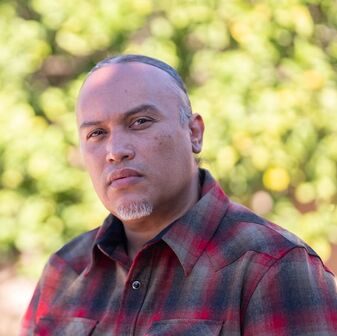 Joel Garcia (he/him) is a Huichol, Indigenous artist, cultural organizer, and educator who uses Indigenous-based frameworks to center those most impacted, and arts-based strategies such as printmaking, installations, creative action, and altar-making to raise awareness of issues facing underserved communities, youth, and other targeted populations. In various roles, he has worked with Indigenous communities across borders in support of issues of land, access, and self-determination. His work explores healing and reconciliation, as well as memory and place. He previously served as Co-Director at Self Help Graphics & Art (‘10-’18) and is the co-founder and current director of Meztli Projects, an Indigenous-based arts and culture collaborative centering indigeneity into the creative practice of Los Angeles. He’s a current Stanton Fellow and former fellow of the Goethe-Institut, Monument Lab, and the Intercultural Leadership Institute as well as a former artist-in-residence at OXY ARTS and AIR (Los Angeles Cleantech Incubator). BACC: How does your professional, community, and/or cultural work inform your role as a BACC Board Member? Joel: As an arts administrator and arts advocate a significant part of my contribution to the field has been the dismantling of systems that other and exclude artists and organizations that have been negatively impacted by colonization. At times this has meant imagining new ways of doing things and expanding the definitions of frameworks to broaden inclusivity while simultaneously focusing on those most impacted by our decisions. To me, this means that systems and systems building should be adaptive and informed by the most marginalized. This approach led me to co-found Meztli Projects which proposes new approaches centered on the values of Indigenous Peoples. We have proven that these approaches work and have informed the innovation of youth development in Los Angeles County as well as increased support for Native and Indigenous artists and cultural workers helping raise the visibility of First Peoples to the extent that policy changes have occurred by some of the creative action impulsed by this work. Most importantly creating new ways to bridge understandings between peoples with a variety of orientations to place has been some of my most successful work. For example, the concept of cultural stewardship is really important to me, and the recently launched exhibition at OXY ARTS The Iridescence of Knowing which I co-curated with Mercedes Dorame is both a form of Land Acknowledgment and also another way to connect settler societies with First Peoples. A white-dominated worldview measures what cultural items, works, etc. are valued, and as institutions make attempts to decolonize or in some instances indigenize, these new ways, approaches and processes and those who can imagine them will lead the way. I feel this experience can support BACC in the forward-thinking work it is doing. B: What excites you most about being on the BACC Board? J: The arts and culture field is in a unique position to use its creative potential to infuse our society with new ideas, processes, and ways of being that it sorely needs right now. To me, imagining new systems and pulling together the resources to pilot, reflect, adjust, and repeat until we get it right is important. In my experience, Boards can disproportionately focus on the “organization” and overlook staff. For me, there’s an opportunity here to balance this and contribute to the development of care systems that can nurture an ecosystem of support for the people who steward the mission of BACC. B: If you could have one artwork or artifact (personal or otherwise) conserved by the BACC team, what would it be and why? J: I would say the murals of Paul Botello. He is the brother of David Botello of the East Los Streetscapers along with Wayne Healy and to my understanding was a member for a short time. Paul is one of those artists who 20 years later is going back to murals to care for them, repair them and ensure that the connection to the community is ever present. And he does this out of pocket. And that’s a shame for a city and county like Los Angeles to spend more money on graffiti abatement than on mural preservation and or creation. As one of the few nonprofit regional conservation centers in the United States, and the only such center in the western region, the Balboa Art Conservation Center is undergoing transformational change as it shifts into a radically inclusive and accessible art conservation organization. The BACC Board helps nourish this shift while ensuring the organization's vision for inclusion has long-term systemic impact. The BACC Board of Trustees is led by Board President Dana Springs and boasts a board membership that is 50% BIPOC (Black, Indigenous, and People of Color). In addition to its racial diversity, BACC board members are located throughout BACC’s service area, including Seattle, the Bay Area, Los Angeles, and San Diego. They bring a range and depth of expertise in community organizing, arts management and advocacy, fundraising, conservation, education, and financial management. Their diverse perspectives and skills are essential as BACC seeks to fulfill its vision for equity and healing within our own structure and workplace, as well as the communities we serve. Throughout 2023, we are highlighting each of our Board Members to better understand what excites them about being a part of the BACC Team at this transformative time. 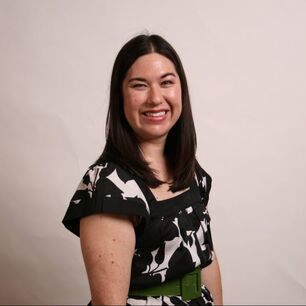 Erika Katayama (she/her) is the Associate Director, Interpretation at the Seattle Art Museum. With 20+ years of experience in multiple museum departments, she has worked at federal, state, and private institutions. Her work has taken her to Louisiana, Texas, Washington DC, Oklahoma, and California. She is committed to access and inclusion within all areas of museums and is currently writing a book about issues of diversity (and the lack thereof) within exhibition design. Her previously held roles on the West Coast have included advisory committee membership for DEAI initiatives for the California Association of Museums, Sr. Director of Audience Engagement at the Museum of Us, and Director of Visual Learning at the Museum of Photographic Arts. Outside of work, she volunteers as a Girl Scout troop leader for 17 5th graders. BACC: How does your professional, community, and/or cultural work inform your role as a BACC Board Member? Erika: In particular, I am especially excited for BACC’s outreach efforts to show young people the various careers that are available to them that combine art, science, and education. I want our field to continue to diversify, and BACC is demonstrating the wide area of opportunities that exist. Additionally, I want people to see themselves reflected in these various jobs, one of the reasons why representation matters. I know what it is like to be the “only” in the room and BACC is helping to break down the systems and structures of access and gate-keeping. B: What excites you most about being on the BACC Board? E: My participation on the board from Seattle means that I am helping to solidify BACC’s place as a regional resource, not just for Southern California. I want to help amplify the work that is being done, but also create a framework for sustainability and growth of that work for the West Coast and beyond. 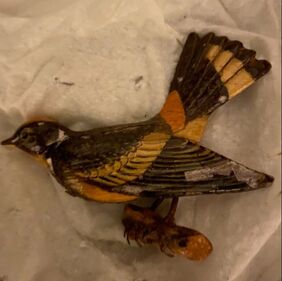 B: If you could have one artwork or artifact (personal or otherwise) conserved by the BACC team, what would it be and why? E: Like tens of thousands of other Japanese-Americans, my grandma was incarcerated at Poston in Arizona during WWII. A friend of hers there made a beautiful carved and painted bird brooch, which my grandma has now gifted to me. There are some paint losses and the object is quite fragile. I intend to eventually donate the brooch to the Japanese American National Museum. While lovely, the brooch serves to remind us all of that horrible chapter in American history. 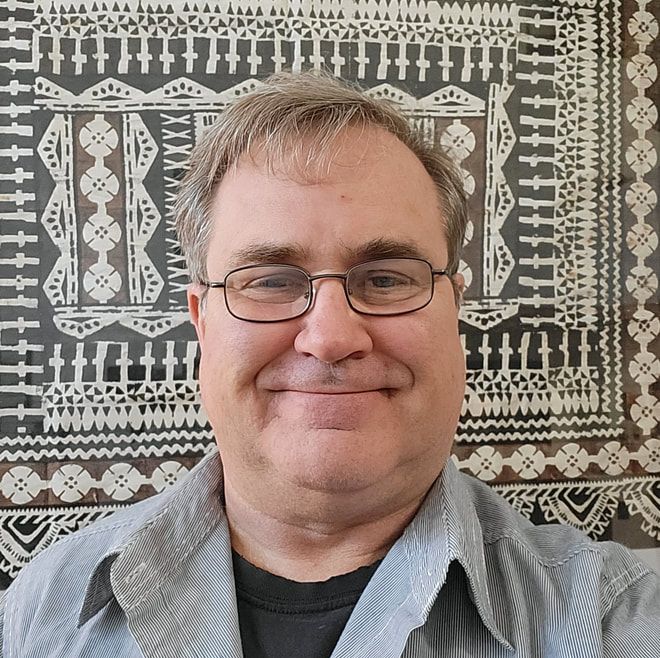 As one of the few nonprofit regional conservation centers in the United States, and the only such center in the western region, the Balboa Art Conservation Center is undergoing transformational change as it shifts into a radically inclusive and accessible art conservation organization. The BACC Board helps nourish this shift while ensuring the organization's vision for inclusion has long-term systemic impact. The BACC Board of Trustees is led by Board President Dana Springs and boasts a board membership that is 50% BIPOC (Black, Indigenous, and People of Color). In addition to its racial diversity, BACC board members are located throughout BACC’s service area, including Seattle, the Bay Area, Los Angeles, and San Diego. They bring a range and depth of expertise in community organizing, arts management and advocacy, fundraising, conservation, education, and financial management. Their diverse perspectives and skills are essential as BACC seeks to fulfill its vision for equity and healing within our own structure and workplace, as well as the communities we serve. Throughout 2023, we are highlighting each of our Board Members to better understand what excites them about being a part of the BACC Team at this transformative time. Tim Campbell (he/him) began his career in the arts after graduating from Occidental College at the Bowers Museum of Cultural Art, acting as the Collections Manager, working with volunteers, docents, and assisting curators and registrars with exhibitions. After the Bowers, Tim was a Visiting Researcher at the Tokyo University Museum in Japan, assisting curators with exhibition research for two years. Upon returning from Japan, Tim worked at Disney’s Animation Research Library for a decade, expanding his experience with art conservation, creation and tracking of digital images, the different approaches of archives vs. museums, and the licensing of intellectual property. Following his work with Disney, Tim worked with Blizzard Entertainment to start a culture of exhibitions, providing access to art created over the company’s 20-year history. In addition to displays of artwork at Blizzard’s offices and events worldwide, he was able to partner with art galleries and museums for a program of external exhibitions, including a very successful exhibition at the Museum of Contemporary Art, Taipei in 2010. After leaving Blizzard in 2012, Tim took a position at the Laguna Art Museum, and served as Collections Manager, Registrar, and Manager of Collections and Registration until 2023. Tim has been the Curator at the Golden West College Art Gallery, taught courses in the museum studies program at Irvine Valley College, and is currently the Art Gallery Technician for three gallery spaces run by Santa Ana College, occasionally curating exhibitions. Tim also serves on the Board of Directors of The Chimaera Project, a nonprofit organization dedicated to empowering women and non-binary filmmakers to help change the landscape of hiring practices in the film industry. BACC: How does your professional, community, and/or cultural work inform your role as a BACC Board Member? Tim: I have had the opportunity to work with large collections of art on paper, as well as paintings, and have been the point person to contract the services of conservators for many projects over the years, so I have a fundamental understanding of the business involved. I have also had an interest in preservation and conservation since my earliest museum days, which inspired me to join the Western Association for Art Conservation and to audit classes in conservation science while living in Tokyo (taught by Frank Preusser, first staff member of the Getty Conservation Institute). B: What excites you most about being on the BACC Board? T: I hope that I am contributing in my small way to support a good cause, helping to provide an excellent and needed resource, one which has grown in mission and vision in really cool and important ways while I have been here, which I am extremely honored to be around and participate in. I am excited to be supporting the people who are doing the work, making a difference, and furthering the institution and the field. B: If you could have one artwork or artifact (personal or otherwise) conserved by the BACC team, what would it be and why? T: Most of my personal collections are objects, books, and photos, but I wouldn’t want to pass up such an opportunity…maybe one of these two items would be within the scope of things that BACC is now equipped to handle? 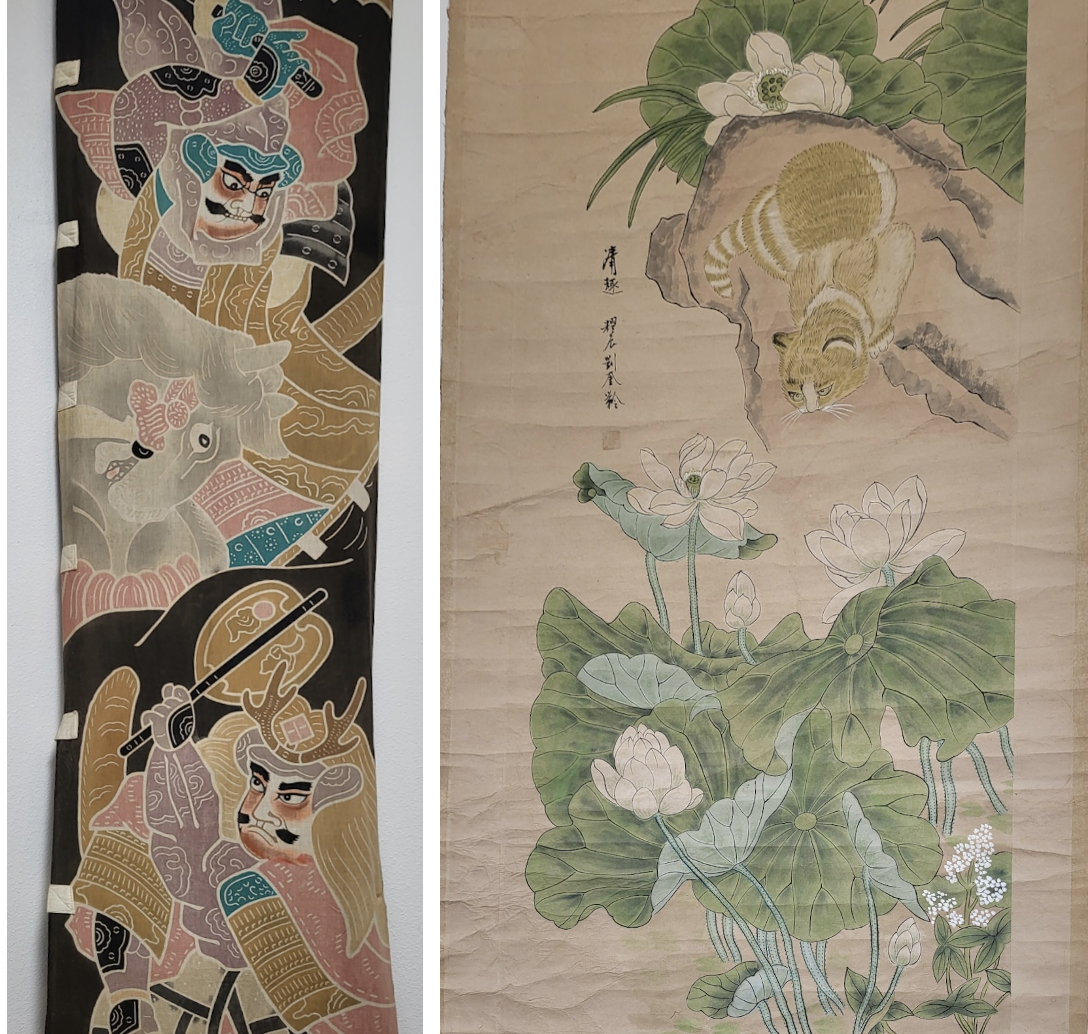 B: We are certainly equipped to treat these! |
Categories
All
Archives
June 2024
|
